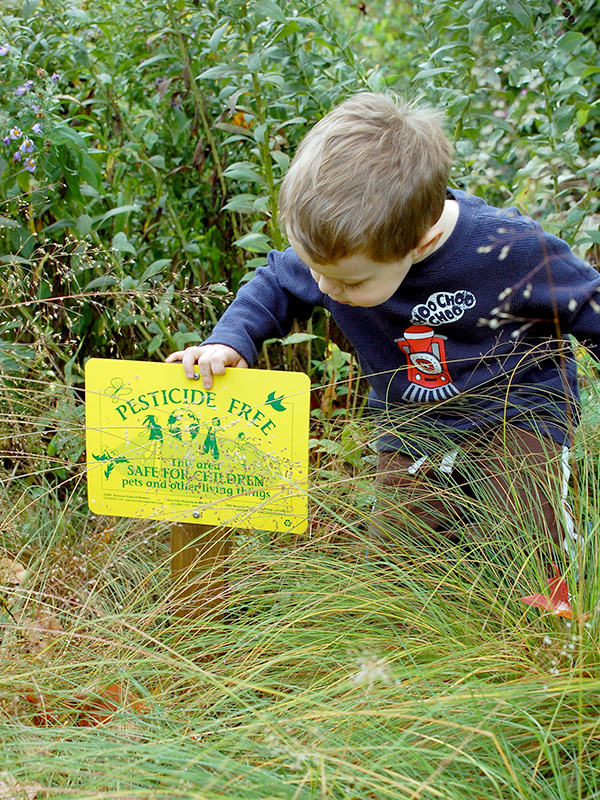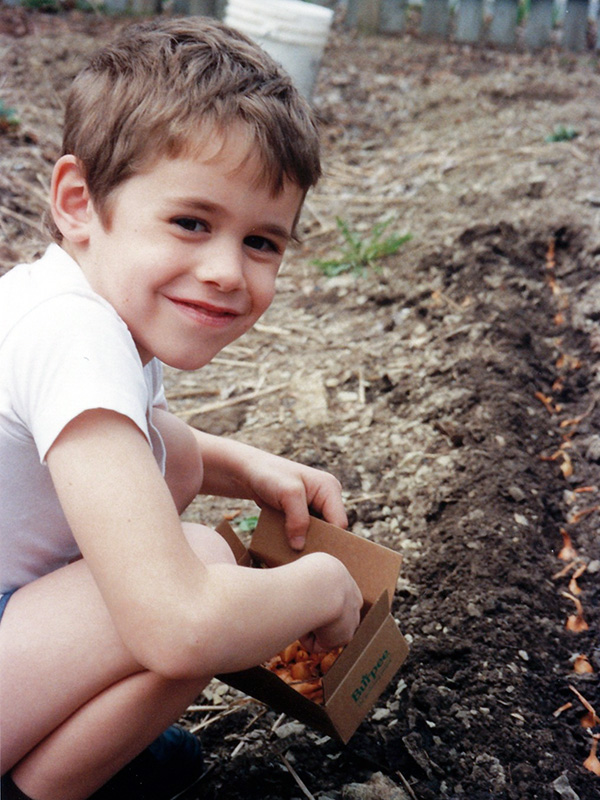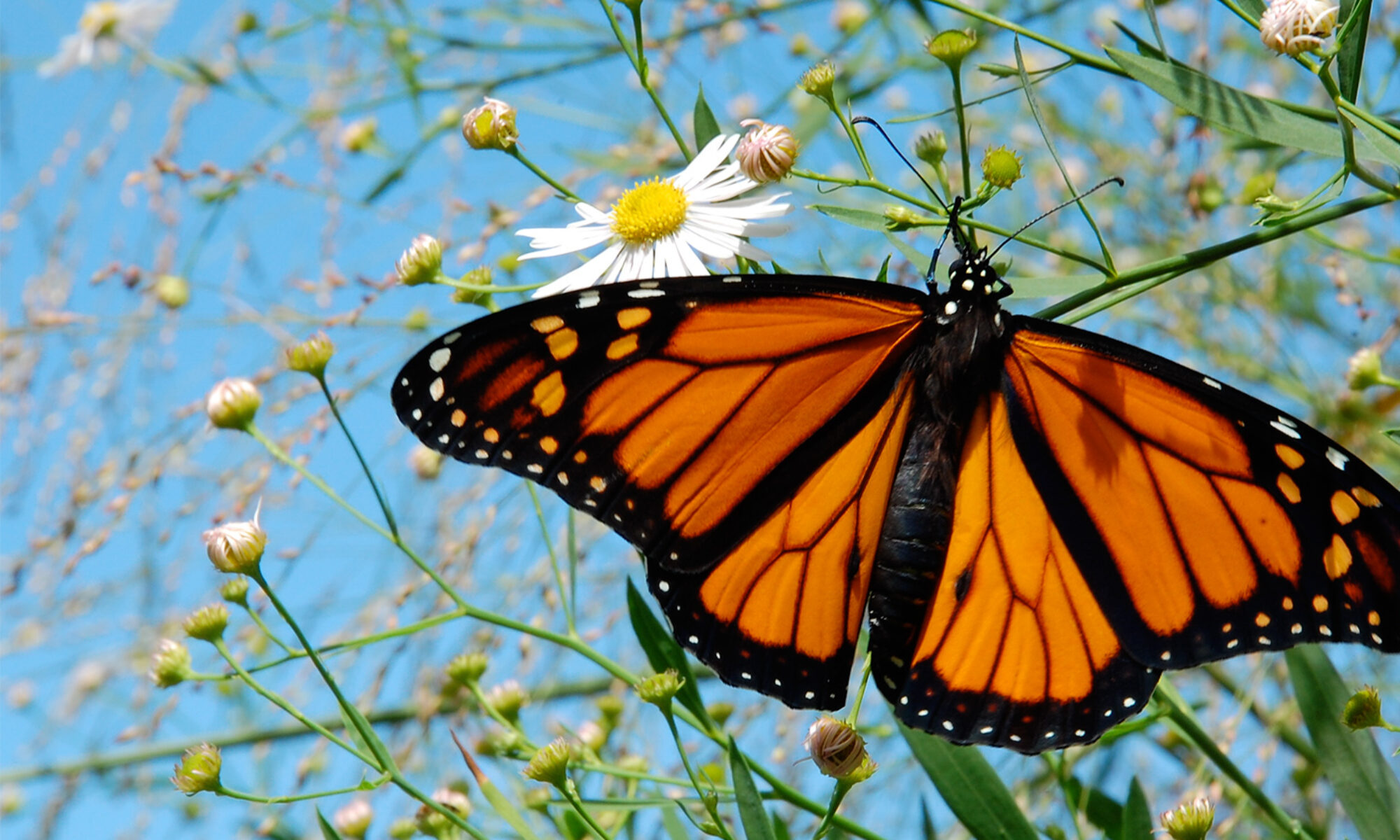We’re increasingly alarmed about habitat loss all over the world — for people as well as for animals. Conventional home landscaping is part of this destruction. We must do better!
We use earth-friendly gardening practices in our own yard.
They directly lead to a healthier world, but they also demonstrate how these same practices, done on a global scale, are important in the world beyond our yard — now and in the future.


What kind of a world are we leaving future generations?
Our stewardship of the earth in our own yards and beyond will determine our descendants’ quality of life.
As the author Roman Krznaric says, we must be a “good ancestor” not just for our own children and grandchildren, but for their grandchildren … and on and on!
Our Habitat Garden’s earth-friendly practices:
- Earth-friendly gardening tips — tools, keeping track of plants, and weeding
- Plants — siting, cutting back, pruning
- Getting native plants — buying some
- Growing our own
- Weeding or “editing”?
- Lawn — reducing lawn, using organic lawn care practices
- Problems with lawns — toxic chemicals, water resources, human costs
- Reducing the amount of lawn — dramatically reducing the size of our turf-grass lawn
- An organic lawn
- Alternatives — experimenting with some alternative lawn-like plants
- A funny lawn story — conveys a lot of truths about lawns
- Restoring the Property — a touching poem about lawns
- Care of the soil — caring for our soil, the foundation of our gardens
- Mulch — not the obvious answer
- Pesticides and other chemicals — We’ve had a 100% pesticide free yard for many years
- Our alternatives to chemicals
- Water conservation — We try to conserve water in many ways
- Climate — We’re striving to be climate-friendly in our landscaping practices
Resources
- Native Plants Trust:
- Yard Futures Project – envisioning ecological alternatives for back yards
- Ecological Landscape Alliance:
- Homegrown National Park:
- Why light pollution matters and how to solve it – short video by Doug Tallamy
- Protect Our Pollinators:
- Earth-friendly gardening – one yard at a time – comprehensive summary
- Int’l Dark-Sky Asso.:
- Humane Gardener:
- Washington Post:
- Eco RI:
- Krznaric, Roman:
- NY Times:
- Washington Post:
- Organizations for less noise
- Yale e360:
Reflections
We stand now where two roads diverge. But unlike the roads in Robert Frost’s familiar poem, they are not equally fair. The road we have long been traveling is deceptively easy, a smooth superhighway on which we progress with great speed, but at its end lies disaster. The other fork of the road—the one less traveled by—offers our last, our only chance to reach a destination that assures the preservation of the earth.
~ Rachel Carson
Yet we can be sure that whatever fictions exist in Wall Street bookkeeping, the earth is a faithful scribe, a faultless calculator, a superb bookkeeper; we will be held responsible for every bit of our economic folly.
~ Fr. Thomas Berry
The wealth of the nation is air, water, soil, forest, scenic beauty, wildlife habitat — take that away and all that’s left is a wasteland.
~ Gaylord Nelson (who organized the first Earth Day 1970) in a June 1999 address to the Wisconsin Legislature
Someday pride of place will belong to those with the least lawn, lowest water bill, and no chemicals in their garages. Society will value those who work to preserve our environment, rather than those who can make the most money by despoiling it. I personally cannot wait much longer for that day to come.
~ Neil Diboll from The Future of Gardening
In the words of ecologist Frank Egler, “Nature is not more complex than we think, but more complex than we can think.”
~ Dan Barber, The Third Plate, p. 88
